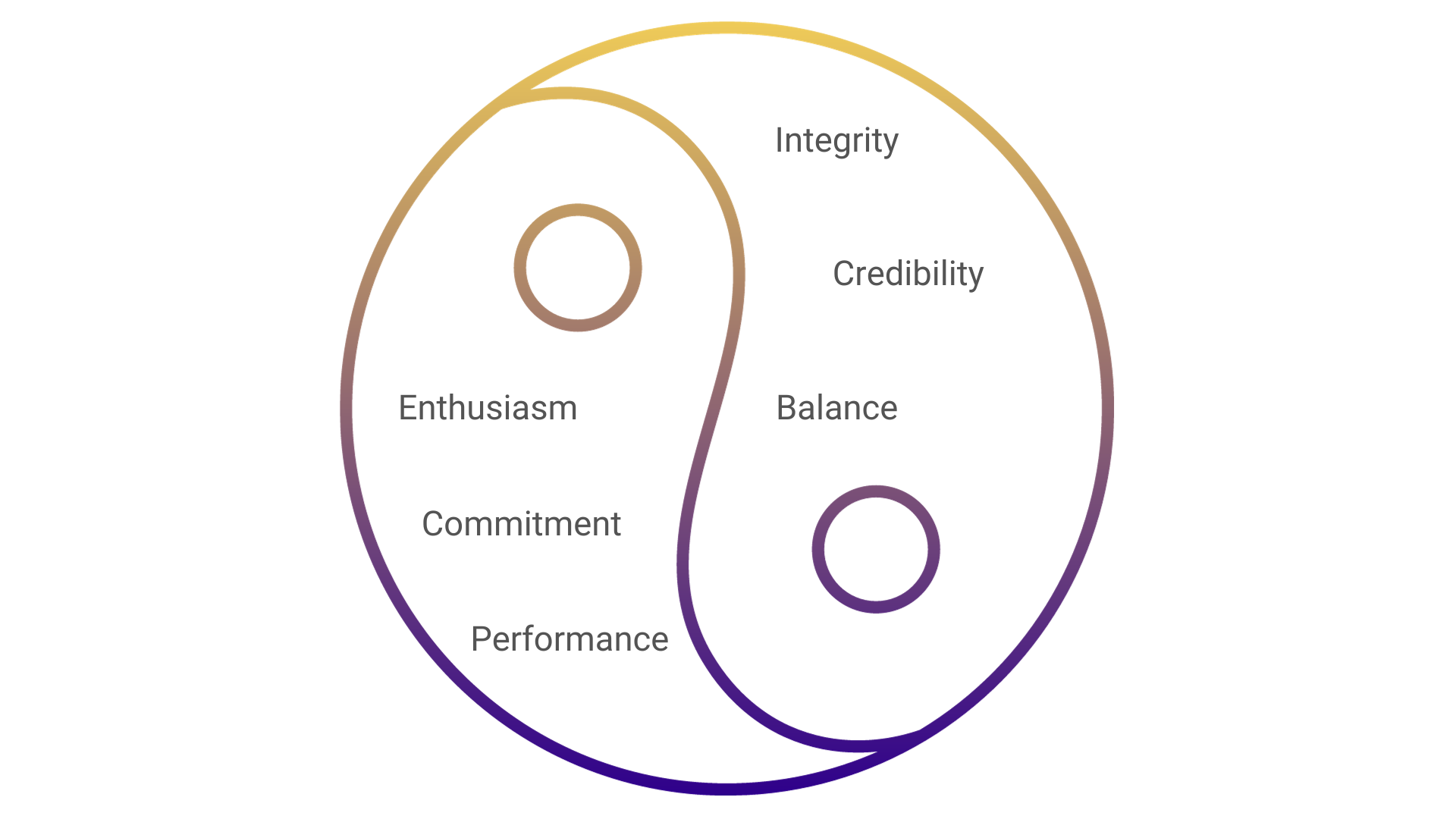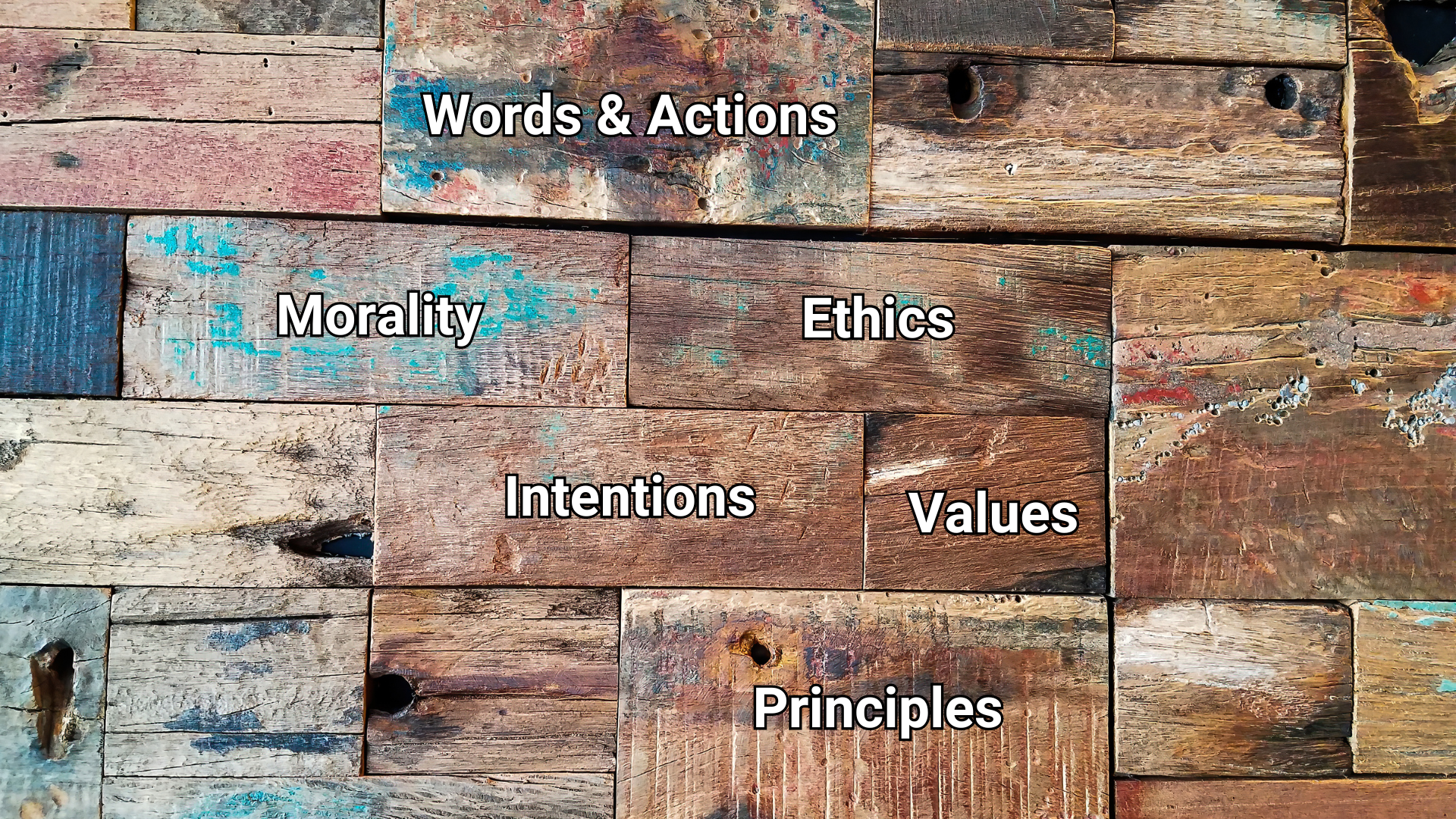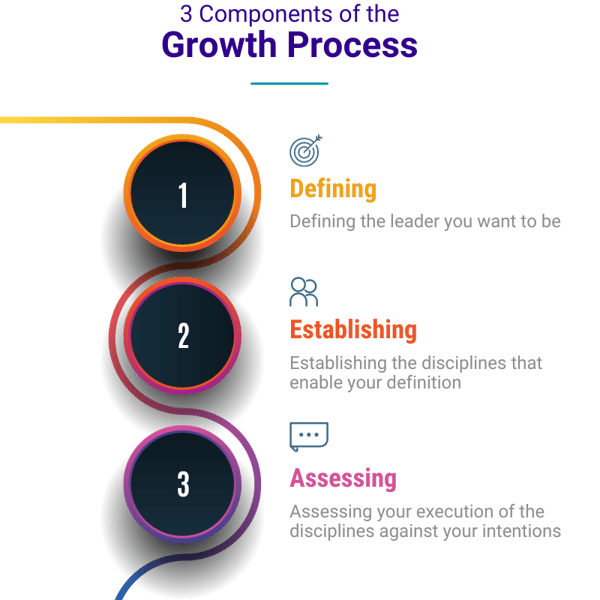Part 2 of 3
This is the second article in a three-part series: check our part 1 and part 3.
Authentic Leadership is Rooted in Being True to One's Own Values & Beliefs
Pathway to authenticity revolves around genuine intentions, executing tasks effectively, and attaining tangible outcomes. To delve deeper into authenticity, it entails aligning your actions with a set of values that not only guide your leadership but also inspire those around you. These values, embodying personal integrity, breathe life into your words and deeds.
Demonstrating authenticity in leadership can be achieved through consistent transparency, where leaders openly share their thought processes and admit to their mistakes. It's also important to actively listen and respond to feedback, showing that all voices are valued. Leading with authenticity and purpose fosters a culture of trust and innovation. Furthermore, making decisions based on core values, even when faced with challenges, exemplifies a commitment to authenticity. Investing in personal relationships within the team by showing empathy and support reinforces a leader's genuine care for their team's well-being and professional growth.
“How good of a leader do you want to be?” Part of your answer will be based on your understanding of what a leader does, but it is equally important to consider what “blows your hair back” and gives you the sense that you are making a difference. One of the factors that you should seriously consider is the nature of the reputation you want to earn. Do you want people to say: “Oh, yeah, I worked for him” and how important to you is it that they also say: “. . . and he made a real difference in my life”?

Unsplash+ In collaboration with Pablo Merchán Montes
Being an authentic leader is about the deep satisfaction of seeing people grow, the energy of high standards, and the excitement of building something that you are proud to have in your life. The importance of internally focused motives to being an authentic leader is why the model of leadership described below has self-leadership at its core. In my experience, the most powerful motives are “selfish” in that they come from within. Only internal resources will sustain you in the inevitable difficult moments that personally challenge you. Excellence through authenticity encapsulates the belief that true greatness is achieved by being genuine and true to oneself.
Generosity in Authentic Leadership
It is through the act of giving that leaders can demonstrate their true commitment to their values and vision. This selfless approach not only inspires trust and loyalty among followers but also fosters a culture of collaboration and mutual respect. Authentic leaders understand that their role is not just to lead, but to serve and empower others. Becoming an authentic leader requires self-awareness, integrity, and a commitment to personal growth.
As it is in all good relationships, the one between leader and followers is give and take, with giving being the driving force of the authentic leader. The qualities that describe the quality of this relationship are integrity, credibility, and balance from leader to followers and enthusiasm, commitment, and performance from followers to leader.
The Eastern ideal of Yin and Yang – the complement between two forces – summarizes the nature of the relationship between leaders and followers.

The Quality of Leadership is Reflected Back on the Leader
The relationship between a leader and her best followers is always voluntary and is captured by the Yin and Yang idea of complementary forces. Enthusiasm, commitment, and performance of followers cannot be demanded any more than a leader’s integrity, credibility, and balance can be demanded. In their truest form, both are gifts. Gordon Bethune (former CEO, Continental Airlines) described a follower’s gifts when talking about his career: “I used to be an airline mechanic . . . and do you know how much faster I could fix an airplane when I wanted to fix it versus when I didn’t want to fix it? That’s where the money is.” He is talking about follower enthusiasm, commitment, and performance earned by leader integrity, credibility, and balance. No matter how much you may want it to be otherwise, your followers choose to be merely adequate or totally inspired just as you choose to be adequate or inspiring.
At its core, being authentic is about having good intentions, doing the right things well and achieving results. A bit more concreteness can be added to the core of authenticity as it demands living in accordance with a set of values that make your leadership predictable and inspiring. It’s your values – personal goodness – that infuse your words and actions with the nature of your character. This process is represented by the Building Blocks of Virtuous Action.

Values Guide Actions, Shaping Ethics & Reputation
Values align your intentions and principles to be the centering force for your personal morality and ethics and, ultimately, your words and actions. Your reputation is the shadow of this alignment. Feedback from the results you achieve and how others describe you is not criticism, but a monitor of your alignment and call to action.
Understanding and developing your strengths within each of the building blocks is a crucial step toward becoming an authentic leader. In conjunction with developing your skills, developing your character raises the bar on your words and actions and, thereby, earns the enthusiasm, commitment, and performance of your followers.
“The more filters there are between the leader’s values and team members’ understanding of them the more uncertain the direction and performance of the team.”
.jpg?width=1920&height=1280&name=desola-lanre-ologun-IgUR1iX0mqM-unsplash%20(1).jpg)
Photo by Desola Lanre-Ologun on Unsplash
It is also the path to embedding a defining set of values in your team. As much as some may want a team’s values to percolate up from followers, they do not. Instead, they filter down as it is the leader’s values that are emphasized and embedded into the team’s culture. The more filters there are between your values and your team’s understanding of them, the more uncertain the direction, spirit, and performance of the team.
Good Leaders are Good Actors – Fake it ‘Til You Get it Right
“I am who I am” is an excuse for staying the same as you are. But the reality is that we are who we are only if we do nothing to change it. While the cards you were dealt in life are important, they are not nearly as important as how you play them. Being an authentic leader, like playing cards, is a skill that improves with the intent to be better, focus, and practice. In this sense, “I am who I want to be” is an important part of being authentic. To paraphrase Muhammad Ali, “To be a great champion (or an authentic leader) you must believe you are the best. If you’re not, pretend you are.” This is not being inauthentic or grandstanding, but the art of directed practice and learning by being. Acting is a skill that authentic leaders have in abundance.
“Being an authentic leader is a skill that improves with the intent to be better, focus, and practice.”
Pretending and practicing requires that you know what you want to stand for, make it clear to yourself and your followers, and accept that there will be gaps between your good intentions and the reality of your words and actions. A leader focused on improvement looks for progress in closing the gaps between his intentions and reality.

With these steps you begin a journey that helps you gauge the distance between your methods of leading (i.e., your words and actions) and the target you have set for yourself – your personal vision. These are the basic steps to personal growth. To achieve the level of awareness characteristic of an authentic leader demands that you become a “scholar” of you. It is not a stretch to say that many leaders know much more about their company than they do about themselves and consider this imbalance to be normal and acceptable. While it may be the norm, it is also the major hurdle to personal growth.
In the final part of this three-part article, Arriving at Your Destination, we examine the path to authentic leadership and the importance of personal growth.




